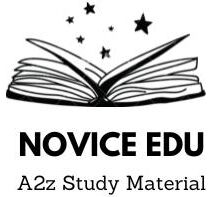CISCE.ORG: India’s Leading Educational Boards.
CISCE: An In-Depth Guide to One of India’s Leading Educational Boards The Council for the Indian School Certificate Examinations (CISCE.org), which is one of India’s best-known education boards, has a reputation for high academic standards as well as emphasis on the all-round development of the learner. Established in 1958, CISCE has played a central role in Indian education, with its broad curriculum creating students who can handle complexities in the world around them. The board administers two of the largest recognized national-level exams at the school level in India: the Indian Certificate of Secondary Education or ICSE examination for class X and the ISC examination for Class XII. History and Evolution of CISCE CISCE was set up to fill the gap of a private non-governmental board that could provide a balanced education within India. It aimed at providing not only an academically excellent but also morally and socially responsible curriculum. The reason behind its formation was to offer quality international education so as to increase students’ access to global educational resources. (cisce.org) Over time, CISCE transformed itself to adequately respond to new learning demands. To ensure that students receive updated information relevant to global trends, it has continuously restructured its syllabus along with patterns of examinations. The Structure of CISCE:(cisce.org) CISCE functions on a well-designed framework for the academic and administrative processes. A board of council which is composed of individuals from different fields, including teachers and educationists, civil servants and other officials, as well as persons representing industry and commerce determines its focus. Such a composition means that the policies and curriculum prepared by the Board are inclusive enough to meet the needs of a wide range of students. The board offers three main examinations:(cisce.org) 1. Indian Certificate of Secondary Education (ICSE The ICSE exam is comprehensive, and it assesses students at the end of class ten. It encompasses various subjects, such as languages, mathematics, science and arts, physical education, and a project in social sciences which is compulsory for all candidates. Its emphasis lies in ensuring that learners can establish a solid foundation before they join colleges. 2. Indian School Certificate (ISC The ISC examination is carried out at the end of year twelve. They are allowed to select different subjects depending on their interests and career aspirations unlike other boards that dictate what one should take as per his/her potential or even profession chosen by parents_ them; the ISC curriculum aims to provide deep knowledge on selected courses hence preparing students for higher level studies in universities and professions. 3. Certificate for Vocational Education (CVE): CVE prepares students who would like to join the vocational training immediately after finishing tenth grade. It offers hands-on training in different trades and skills as an alternative to traditional academic programs.(cisce.org) Key Features of CISCE:(cisce.org) 1. A Balanced and Comprehensive Curriculum The balanced curriculum that CISCE is known for is another feature. The board places equal emphasis on theoretical knowledge and practical application, thus ensuring a holistic understanding of the subjects by the students. This method helps students to develop their critical thinking and problem-solving skills which are vital in today’s fast-moving world. In addition, CISCE’s curriculum is renowned for being flexible. In the ISC stage, they have a large selection of subjects from which to choose thereby allowing them to customize their education according to individual interests and career aspirations. For example, this flexibility is very important for pupils who plan to take specific disciplines such as engineering courses, medical courses, or even arts or commerce.(cisce.org) 2. Focus on Language Proficiency The CISCE curriculum must incorporate language learning. English is used for instruction and pupils are compelled to learn it as a core subject. It is also mandatory for learners to study another foreign language, which may either be Hindi, regional, or any other foreign speech. The primary focus on fluency in languages helps students to excel in communication which is very important in a globalized world. Moreover, literature also contributes immensely to this emphasis on language. This will expose students to a variety of literary works and help them appreciate different cultures and perspectives better. Consequently, these techniques not only enhance their linguistic capacities but also expand their horizons.(cisce.org) 3. Holistic Development of Students CISCE takes pride in being committed to fostering the all-round development of its students. To this end, it encourages schools under its umbrella to incorporate co-curricular activities like sports, arts, music, and drama within the normal school timetable. Such activities foster creativity among children while at the same time enhancing teamwork and leadership skills. Physical education and health are equally given prominence by the board as well. All schools affiliated with CISCE have mandatory physical education classes aimed at ensuring that students remain healthy throughout their lives. Furthermore, having social service projects included in the curriculum facilitates a sense of social responsibility among students as well as building community awareness on global issues involving hunger(cisce.org) 4. Rigorous and Fair Assessment The student’s understanding and application of what they have learned is what CISCE’s assessment system tries to gauge. The board conducts examinations which aim at being seen as fair and transparent. Instead of simply rote learning, the grading system has been designed to ensure that students apply their comprehension, analysis thinking as well as problem-solving skills. A number of modifications have been implemented by the board in its examination system to reduce pressure on students. For instance, it has introduced internal assessments for certain subjects with evaluations done by schools themselves. This strategy helps ease the stress related to end-year exams and provides an all-inclusive evaluation of learners’ performances over an academic year. 5. Global Recognition and Acceptance An important benefit offered by CISCE is that its certificates are recognized globally. University colleges and other academic institutions from almost every corner accept both ICSE and ISC certifications. With such worldwide recognition, students can find numerous opportunities to continue higher education for example in International Baccalaureate or Cambridge programs or American Systems aboard. CISCE maintains … Read more

